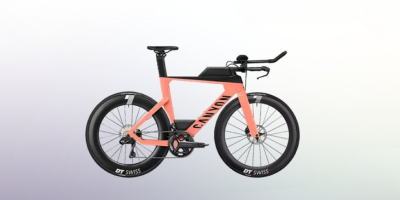Nairobi — Israel has confirmed the recovery of the body of Joshua Loitu Mollel, a 21-year-old Tanzanian national who was among five African victims of the October 7, 2023 Hamas attacks, bringing closure to a two-year ordeal for his family.
Mollel was kidnapped and murdered by Hamas militants during the assault on Kibbutz Nahal Oz, where he worked as an agricultural intern.
The Israel Defense Forces (IDF) said his remains were recovered from Gaza on Wednesday, November 5, 2025, following extensive efforts to locate and return hostages and victims abducted during the attack.
Follow us on WhatsApp | LinkedIn for the latest headlines
He was the only African national whose body had remained in Hamas captivity.
“IDF representatives informed the family of Joshua Loitu Mollel that he has been returned for burial,” the Israeli military said in a statement.
“According to the information and intelligence available to the IDF, Mollel, 21, was an agronomy student who arrived in Israel for agricultural training at the Ibim Agricultural Campus as part of his studies. He was murdered by Hamas on October 7, 2023, and his body was abducted to Gaza.”
The IDF said Mollel’s death had been officially confirmed on December 13, 2023, after months of investigation.
“He leaves behind his parents, three sisters, and a brother,” the statement added, expressing deep condolences to the family.
The Israeli military reaffirmed its commitment to recover all hostages and victims still held in Gaza, calling on Hamas to fulfil its obligations and allow the return of all hostages for dignified burial.
Killed hostage
Mollel, a native of Tanzania’s Manyara Region, had travelled to Israel through an agricultural internship programme run jointly by Tanzanian and Israeli institutions.
He was stationed at Kibbutz Nahal Oz, near the Gaza border, when Hamas gunmen stormed the community, killing civilians and taking dozens hostage.
Initially listed among the missing, Mollel was later confirmed dead by Tanzania’s then-Foreign Minister January Makamba, who revealed that the young student “was killed immediately after being taken hostage.”
“We are planning to take Mr. Mollel’s father, another family member, and a government official to Israel to get more information on the matter,” Makamba said at the time.
In Nairobi, the Embassy of Israel in Kenya expressed sorrow following confirmation of Mollel’s identification, describing him as a promising young man whose ambition was to use his training to uplift his community back home.

Sign up for free AllAfrica Newsletters
Get the latest in African news delivered straight to your inbox
Success!
Almost finished…
We need to confirm your email address.
To complete the process, please follow the instructions in the email we just sent you.
Error!
There was a problem processing your submission. Please try again later.
“The Embassy of Israel in Kenya receives the news of the identification by Israel of the body of Joshua Loitu Mollel with heavy hearts,” the mission said.
“Joshua was killed by Hamas terrorists on Oct. 7, and for 761 days, his family waited in anguish, denied closure. We mourn with the family of Joshua and pray that his soul will finally find eternal rest among his people.”
5 Africans killed
The same assault also claimed the life of Clemence Felix Mtenga, another Tanzanian student working on a nearby farm.
At least five African nationals were killed in the October 7 Hamas attacks, including two asylum seekers from Eritrea, one from Sudan, and two from Tanzania.
The other identified victims were Wolderaphael (Tiger) Hagos Berhe, a 40-year-old Eritrean asylum seeker killed in Sderot whose body was later identified through DNA and repatriated, Goytum Jabrahiwat, another Eritrean asylum seeker murdered in Sderot, and Adam Barima, a Sudanese asylum seeker also killed in Sderot.
The October 7, 2023 Hamas attacks killed more than 1,200 people in Israel and led to the abduction of about 250 hostages into Gaza, triggering the ongoing conflict between Israel and Hamas, which is designated a terrorist organization by Israel, the United States, the European Union, and several other countries.


















